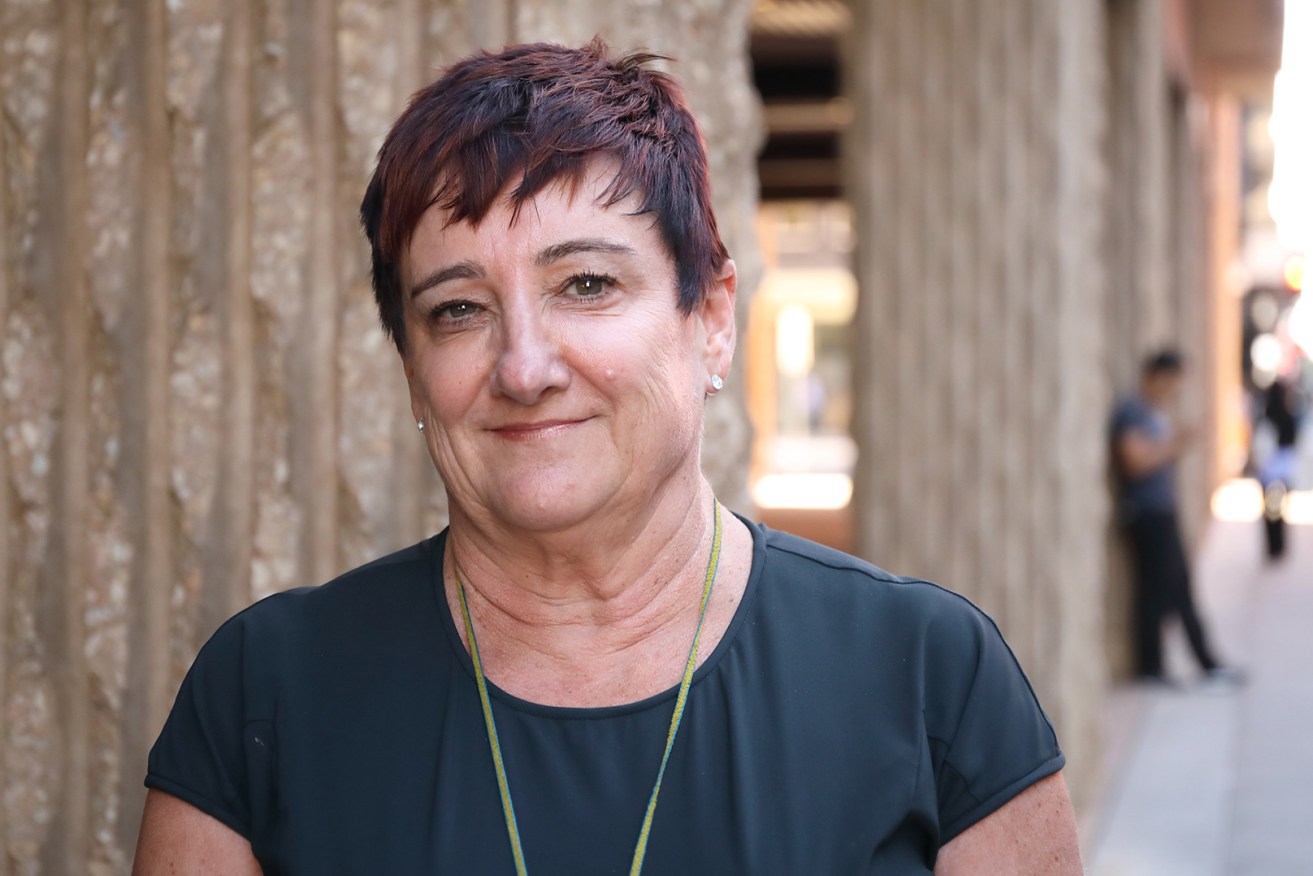“Children’s brains just don’t heal themselves”
There is a “big gap” in South Australia’s child protection system when it comes to providing children who experience severe maltreatment and abuse with specialised therapy, says the Department for Child Protection’s chief psychiatrist.

Department for Child Protection lead psychiatric director Dr Prue McEvoy. Photo: Tony Lewis/InDaily
Speaking to InDaily one year after her appointment, the Department’s lead psychiatric director Dr Prue McEvoy said work was underway to address the gap, but South Australia currently does not value nor resource “as much as we should” psychiatric treatment for children in care.
McEvoy, who was appointed in the wake of Royal Commissioner Margaret Nyland’s 2016 probe into the state’s child protection system, described child and adolescent maltreatment as an “enormous issue for our community”.
She said a “whole-of-government” response was needed to address a “big gap in our service model” for children who come in contact with child protection services and who require specialised psychiatric support.
“That level of specialist treatment, I don’t think we value as much as we should, nor do we put the resources in as much as we should,” she said.
“I sit in many meetings when even professional people say, ‘well can’t you just talk to them (the children) and fix them?’
“I’ve been in psychiatry for a long time and child psychiatry for a long time and I think we are just more aware that you don’t have the luxury of a disorder that you can just fix with a tablet.”
As of February this year, there were over 4200 South Australian children in care, including 3649 in family-based arrangements such as foster and kinship care, and 592 in non-family-based care such as residential and commercial care homes.
I think there are children who just don’t know what safety is
McEvoy said many of those children have strong histories of maltreatment, with some suffering brain injuries from acquired trauma, attention difficulties and challenges building relationships.
“There was a very recent article in New South Wales looking back at people’s records and it said children who have some contact with child protection services are three times more likely to present with mental disorders in childhood and if they’re in out-of-home care that rises probably to five times,” she said.
“I think there are children who just don’t know what safety is and so you might bring them into care and think you’re going to create safety for them, but they struggle with that because they’ve never experienced that
“You actually need to sort of rewrite the relational part of their brain in some ways, which is not easy.
“Children’s brains just don’t heal themselves.”
Despite studies showing a link between increased rates of mental disorders for people who have histories of child maltreatment, the health and child protection systems have only recently explored the issue in depth.
McEvoy, who is also a senior child and adolescent psychiatrist with SA Health, is the Department for Child Protection’s only psychiatrist, helping it to develop therapeutic care models to assist children who present with psychiatric problems.
They’re like little scared children that put on all this bravado
She also hopes to change people’s preconceptions about the behaviour of some children and young people in care.
“What we have to remember is these are children who have experienced awful things in their life, not necessarily because that’s what their parents intended,” she said.
“For people to say ‘just lock them up – that will teach them a lesson’, well, they’ve had all that sort of punitive parenting their whole life and clearly that hasn’t worked.
“What’s happened is they don’t have any sense of safety, they don’t have ways of regulating their own emotions, they’re often constantly on alert waiting for something terrible to happen, so they will get drawn to peers who will sort of create this group culture of belonging.
“They’re like little scared children that put on all this bravado, which can be very risky, very dangerous and very worrying to the community as a whole, but if we just talk in that punitive way then we’re really just repeating their life story.”
Parents of children in care are often blamed for being bad or undeserving carers, but McEvoy said often their actions are a result of trauma passed down through generations.
“If they haven’t experienced maltreatment as such then they’ve experienced significant adversities that you and I probably wouldn’t imagine,” she said.
“They’re trying to parent the best they can but then they face all the vulnerabilities that come with adversity – if they haven’t got an education, if they’re living in poor circumstances, if they don’t have supports around them, domestic violence – we all know the face of that at the moment – drug and alcohol abuse, so it’s layer upon layer.
“What we know is that we are now seeing intergenerational trauma and so we need to start thinking about how we intervene in those circumstances.”
Already McEvoy has helped establish an “inter-agency therapeutic needs panel”, where different government departments join together to look at how they can better look after children in care.
She has also travelled to Western Australia and Victoria to explore how their therapeutic models could work in South Australia.
“We’ve realised that it’s not just about giving them a roof over their head – we actually have to think about their whole development and their emotional wellbeing moving forward,” she said.
“But getting children into safety, supporting families before children even need to come out of their care is obviously going to be the best for them.”
Want to comment?
Send us an email, making it clear which story you’re commenting on and including your full name (required for publication) and phone number (only for verification purposes). Please put “Reader views” in the subject.
We’ll publish the best comments in a regular “Reader Views” post. Your comments can be brief, or we can accept up to 350 words, or thereabouts.




